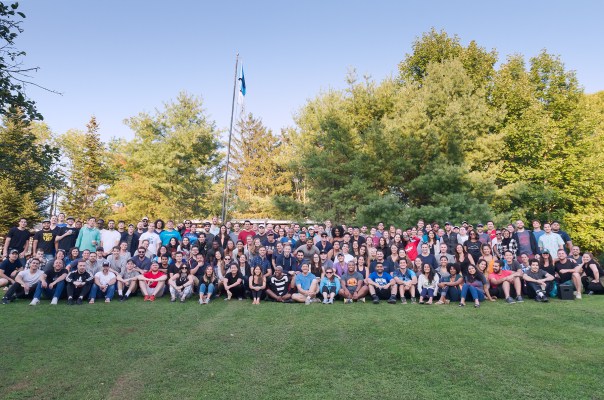Isaac Oates runs a startup that’s looking to be a complete suite of operational tools like human resources and payroll for businesses — but he and his team initially didn’t get why users kept asking better reporting tools over and over again.
It’s indicative of the constant push-and-pull startups and founders face when having to juggle the hopes and dreams of their own road map and product with the constant need from employees. But that constant ask, borne from what was actually an unintuitive critical need for their customer base, ended up straight on the road map even if things had to be tabled. And Justworks isn’t known for moving lightning fast and breaking things in half. Instead, Oates wants to move slowly, make users happy, and get the right people in place before beginning to rapidly expand across the U.S. — which is part of the reason why the company is announcing today that it has been able to secure a new $40 million financing round.
“There’s this saying that they have in the military: slow is smooth, smooth is fast,” Oates said. “We’ve always taken a very measured approach in how we built the company. What it’s done is it’s given us enough time to understand what’s working and what’s not working and revise and try again based on that information. If you go too fast you don’t have an opportunity to learn at the speed you need to learn.”
Justworks operates in an increasingly crowded space of all-in-one business operation suites that include tools like human resources, payroll, employee management, benefits, and other kinds of tools that businesses critically need to operate as they grow up. But the aim, like many startups looking to attractive businesses, is to provide a much simpler and more approachable set of tools that take away some of the headaches of ducking through tons of drop-downs and windows-within-windows to find the exact employee time off you want to note in a calendar six months from now — which may or may not work.
And by making those more streamlined and automated, there are opportunities to reduce the human error part of the equation as well as companies get bigger and bigger. But small businesses are probably the widest segment that need these kinds of simpler tools to actually start to scale in the first place, and that’s part of the reason why Justworks was attractive to FirstMark Capital, which led the investment (with Beth Ferreira joining the board). Existing investors Redpoint Ventures, Index Ventures, Bain Capital and Thrive Capital also participated.
“I think small businesses historically are very difficult and very expensive to reach, I think that there are actually relatively few companies that have cracked the code in reaching them in a scalable and efficient way,” Oates said. “The ones that have done it have done really well for themselves. I’d say that’s probably the area that we have spent the most time with investors. In many ways, one of the areas that we have developed the most over the period of time we’ve been around as we’ve gotten our approach.”
![]()
Even flush with funding, Oates says the company doesn’t want to move too quickly. For example, expanding outside of New York was placed on the back burner for a while during the ironing-out phase of the company’s plans. But once that was established, even during the year-plus time where it might have made sense to hit the gas, Justworks was more prepared to expand into new markets, he said.
Justworks does operate in a very crowded space, including other companies looking to be an employer suite filled with tools for payroll, human resources, compliance and other major company operations. There’s Zenefits, Gusto, Namely — and that’s just listing the startups before getting to payroll giants like Paychex. The hope is that picking up those learnings form initial customer bases will help Oates build out a playbook that will help it continue to methodically expand (and bring on the right sales force) in a way that helps them control the entire experience from start to end.
“They took the time to really understand the cadence of the decision-making around their customer and how to get to that customer,” Ferreira said. “They’re just in the place where they’re scaling the sales team to execute. When you think about the product perspective, now you have a better, less expensive product, you’re really utilizing tech in the way no one else is doing it in the space.”
